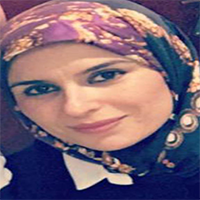مضى لقائي بمؤسسي موقع "ميدان" التابع للجزيرة نت سلسا، حتى أخبروني أن محرري الموقع وكتّابه لا يمكن أن تتجاوز أعمارهم الـ38 عاما، مبتدئين من عمر الـ18.. بقي لي عام واحد فقط، لأتمكن من المشاركة في الموقع الذي اتخذ من "الواقع بمنظور شبابه"، شعارا له!.
حذرتهم أن الوقت يمر سريعا، وأنهم سيجدون أنفسهم قريبا خارج الموقع الذي أسسوه، وهم يطلون على مشارف الثلاثين الآن.
ويشكّل فريق الموقع "ثلاثيّاً" يضم أنس حسن وعبد الله الرشيد وعمر الحكواتي، وهم أعمدة الموقع الرئيسية بالإضافة إلى 35 محررا موزعين حول العالم، يتواصلون فيما بينهم عن طريق تطبيق "سيسكو سبارك" (Cisco Spark) الذي يمثّل غرفة أخبار افتراضية، يجتمعون من خلاله ويناقشون تفاصيل إدارة الموقع.
صوت واحد ومهامّ موزعة
كان حسن ينهي جملة فيتبرع الرشيد بإكمال الجملة الثانية خلال حوارنا، وما إن يستكمل فكرته حتى يبادر الحكواتي بإنهائها، فتتأكد أن النتيجة المرضية التي ظهرت على الموقع سبقها وضوح للرؤية لدى مؤسسيه.
أما الرؤية فتنطلق من رغبة الجزيرة في مخاطبة الشباب.. اطّلع "الفريق الثلاثي" على العديد من المواقع الصحفية الشبابية ورصدوها وتواصلوا مع أفضل المحررين لاستقطابهم للعمل معهم.
وكان الهدف هو إعادة الاعتبار لمهنة الصحافة والصحافة الجادة من خلال محتوى قيِّم يبتعد عن الإسفاف في ظل خضوع الصحافة الحالية لإغراء التقنيات الجديدة، وما يترتب على ذلك من استبدال معايير شبكات التواصل الاجتماعي بالمعايير المهنية التي تركز على المضمون. لذا فهو من المواقع التي تحوي تقارير طويلة قد تبلغ ألفي كلمة، لكن طولها لم يمنع أن يكون متوسط المدة التي يقضيها القارئ في التقرير الواحد -حسب مؤشرات غوغل- يقترب من الدقائق العشر، مما أثبت أن ربط الشباب بالتسطيح ليس بالأمر الدقيق.

أبناء الميدان
وبحسب فريق "ميدان"، فقد جاءت تسمية الموقع مرتبطة بالواقع الشبابي الذي تأثر بالميدان وعايش صراعات عدة في العالم العربي شكّلت وعيه الشبابي. فشباب اليوم هم أبناء ميادين الربيع العربي التي كانت ساحات تجمّع شبابية ضمّت السياسي والمثقف والمتعلم والعامل.. إلخ. ويناقش الموقع تطلّعات الشباب وأفكارهم المنبثقة من الميدان.
بل إن لجوء الشباب أكثر إلى القراءة بدأ فعليا منذ لحظة الانفجار عام 2011. وقد شكّل ذلك الانفجار في الميادين صدمة تبعها سؤال وبحث من قبل الشباب الذين يدينون للميدان بالولاء، بغض النظر عن اختلاف مواقفهم السياسية والفكرية. كما انبثقت العديد من المبادرات الشبابية الأكاديمية والصحفية من الميدان وانهارت كثير من الخطابات التقليدية، لا سيما تلك التي راهنت على سذاجة تفكير جيل "التقنيات".
ابنٌ بارٌّ للجزيرة نت
بدا الفريق "دبلوماسيا" وهو يتحدث عن الولادة "الميسّرة" لموقع "ميدان" من الموقع الأم "الجزيرة نت"، نافيا أن يُهدِّد وجود موقع شبابي الموقع الرئيسي أو أن يشير إلى "شيخوخته".. "ميدان ليس موقعا إخباريا كالجزيرة نت، فليس للخبر فيه أي أولوية.. كان الخبر يهمُّ الشباب في بدايات الربيع العربي، بينما الآن يركز الشباب على التحليل والرؤية.. لذا نعتمد في ميدان على صحافة المصادر البحثية حيث يبحث الكُتّاب في مصادر عربية أو غربية لكتابة تقارير عن ظواهر معينة، فمثلا لا يذكر الموقع غرق عبارة مصرية، بل يتناول أسباب هجرة الشباب واضطرارهم للمجازفة بحياتهم.. إلخ".
وقد لجأ الموقع إلى هذا الخيار في سبيله للتخلص من أزمة الخطابات الحماسية التي وقع فيها كثيرون منهم، مولين اهتماما أكبر بالإمساك بأدوات تحليل الخبر وقراءة الواقع العربي بصورة جديدة.
والمطَّلع على الموقع سيضيف إلى تلك الملاحظات ملاحظة جديدة تتعلق بتركيزه على الفن والموسيقى والثقافة ورصدها بأسلوب جدي ومشوق.
المحرر "الجندي المعلوم"
أجرى فريق "ميدان" مسحا كاملا للمحرّرين الشباب الذين يكتبون في المواقع الشبابية المعاصرة، رافعا (الفريق) سقف المعايير، حتى اختار فريقا من المحررين الذين لديهم دوائر تأثير وهم صحفيون بالأساس وصناع رأي، ولذلك يوضع اسم محرّر القسم وصورته في الموقع ليشترك مع المؤسسة في تحمُّل مسؤولية التقارير والمقالات المنشورة في قسمه.
وهناك "مجتمع ميدان" الذي يعتمد على ثلة من متطوعين يمنحهم الموقع فرصة الاشتراك فيه، خصوصا من دوائر الكتّاب الجدد الذين بدؤوا شق طريقهم في حقل الصحافة، حيث يرسلون سيرهم الذاتية وأعمالهم التي تقيّمها لجنة مختصة، ويتم اختيارهم بناء على تقييم اللجنة، بينما يتنوّع نظام المكافآت الخاص بهم ما بين مكافآت مادية أو عينية، أو الحصول على تدريب مجاني لأفضل المحرّرين أو لأفضل محتوى.
ويأتي هذا المجتمع وفق خطة الفريق التي تبدأ بمرحلة الرسوخ، ثم المرحلة التوسعية التي يتمكن فيها من تشكيل فرق على الأرض، وهو ما بدأ به مؤخرا.
كل ذلك لإيمان الفريق بأن لدى جيل اليوم "صندوق" الساحر الذي لن يتوقف عن إخراج أدواته التي يفاجئك بها كل مرة.
الهروب من السؤال التجاري
عملُ الفريق ضمن شبكة الجزيرة منحه ميزة التجريب دون القلق من المسألة المادية. مع هذا، فأعضاؤه يؤكدون أنهم منفتحون على مقترحات لنماذج تسويقية في المستقبل، شرط أن يكون الموقع قد شكّل هويته سواء عبر تقاريره أو في أذهان القراء. فهم مستعدون للتكيف مع تلك النماذج التسويقية دون الإضرار بالرسالة العامة، إذ الهدف –حسب رأيهم- ألا تكون الصحافة عامة والخبرية خاصة مكانا للترفيه.. "الترفيه له أماكن أخرى في حقل الإعلام". كما أنهم لن يتنازلوا عن موقفهم من الهوس التقني، رغم أنهم يستخدمون التقنيات الجديدة كوسيلة لا غاية.
وهم يريدون الوصول إلى مصالحة مع الجمهور، على أن تكون مصالحة منصفة لا يخضع فيها المضمون لسلطة الجمهور بل يحظى باحترامه، حيث يُلاحظ اليوم خوف بعض المثقفين والسياسيين والمفكرين من الإدلاء بآرائهم بجرأة خشية خسارة شريحة من الجمهور.
كما أن أعضاء الفريق متمسكون بأعمدة الصحافة التقليدية التي بدأت بالانهيار.. الأعمدة المتعلقة برصانة المهنة وعدم اتخاذها أداة لترفيه الجمهور.
الـ300 ألف متابع لصفحتهم في الفيسبوك والتسعة ملايين مشاهدة لمقاطع الفيديو التي ينتجونها، ليست نتائج مرضية بالنسبة لهم وحسب، بل جاءت لتؤكد أن الجمهور يخضع أيضا لسلطة ما تقدمه له الصحافة ولديه فضول للمعرفة.
ورغم هذا الرقم المرضي على الفيسبوك، فإنهم لا يفكرون في الانفتاح على جميع منصات التواصل الاجتماعي، فهم غير "مهووسين" بالعالم التقني، ويعتقدون أن طبيعة منصة الفيسبوك هي الأنسب لعرض المواد الطويلة والجادة.
الجانب البصري
الحديث عن نجاة الفريق ورؤيته من الهوس التقني لا يعني أبدا ابتعاده عن استخدام التقنيات كمكمّلٍ للمضمون، وهو الأصل. لذا يشمل الموقع قسم "عين" الذي يهتم بالمحتوى البصري.
يستخدم قسم "عين" الإنفوغراف والخرائط والرسوم البيانية والفيديو وغيرها من العناصر البصرية لتوضيح بعض التقارير التي ترد بها أرقام ونسب مئوية. وأحيانا قد يكون هناك شرح معقد في التقرير فيوضحونه بشرح مفصّل في فيديو، يستخدمون فيه رسومات حسب الحاجة. وقد يستغرق إنتاج مقطع فيديو ثلاثة أيام أو أربعة، ويكون طوله خمس دقائق بحسب الموضوع، حيث يؤمن الفريق بأهمية "الصحافة البطيئة" في عملهم. هذا بالإضافة إلى الفيديوهات التي تروّج للتقارير الطويلة على الفيسبوك، وتعطي ملخصا مشوقا لمضمونها.












































